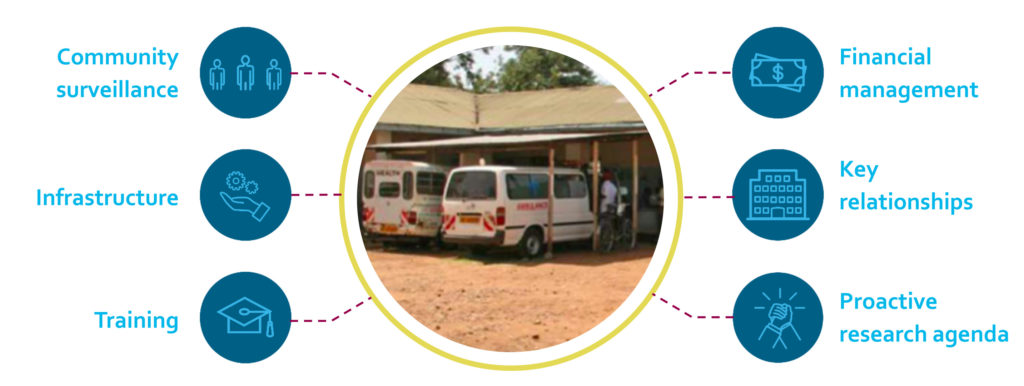At FHI Clinical, we spend a lot of our time working in countries with limited resources, research experience and research capacity. Over the years, we’ve become known for our collaborative problem-solving abilities in what some might consider atypical situations: inexperienced (but able) investigators and study teams, less-established regulatory systems, varying levels of infrastructure, or even events like natural disasters and political unrest.
Each experience adds to the local research capacity, at the investigator, site and government levels. But – what happens after that urgent need or outbreak has been met, or that single study is completed? These local resources often then sit idle. However, keeping a site functional, even in slow times, ensures it is ready as soon as there’s a need. Trained staff are readily available, and expensive infrastructure items are in good working order.
During our time working with numerous sites around the world, we’ve noticed that the sustainable sites are proactively remaining relevant and active by concentrating on the following key areas.
Key considerations for sites to remain relevant and achieve success:

Community Surveillance
First and foremost, successful sites understand their community and its needs very well, including population movement and its effects on the demographics; changes in the population (e.g., birth and death rates); health indicators; and disease prevalence.
Infrastructure
The important outcome here is that sites are reliable and fully operational for any new research opportunity. For successful sites, this means quality laboratory processes, reliable power sources and properly maintained, calibrated equipment.
Training
The same goes for staff – staff members should maintain their training and complete training in diverse areas. At the very least, the basic training requirements for clinical trials (e.g., Good Clinical Practice [GCP], Good Clinical Laboratory Practice [GCLP], Advanced Cardiovascular Life Support [ACLU], IATA) should be maintained and renewed within the specific timelines.
Financial Management
Lacking robust, yet efficient, financial procedures and systems can derail the quoting and start-up of a new study. To provide transparency to sponsors about expenses, the system should be able to easily provide details for granular information, such as a breakdown of overhead expenses.
Key Relationships
The time to initiate a new study is also reduced when sites have established and maintained close collaborations with relevant domestic regulatory agencies and ethics committees. These sites have someone on staff who’s experienced with the submission and comments processes – someone who can provide clarity for a reliable, consistent process.
Proactive Research Agenda
After implementing all the above, it doesn’t help for the site to be sitting idly by waiting for new study opportunities to come to them. Instead, sustainable sites are proactively seeking opportunities and partnerships, while developing a research agenda that ensures the research is relevant to their community.
Our Commitment
At FHI Clinical, we strongly believe that building sustainable research capacity needs to happen — this is the only way we will be able to develop solutions that benefit often under-served communities. We have a position, filled by Ghiorghis Belai, that is dedicated to this purpose. Using his experience in global research, he aims to understand the full potential of a site and its patient population, make sure that a broader range of sites is considered when there is a research opportunity and pair the right sponsor/government opportunities with the right sites.
As we look forward to the future, we’ll be working closely with sites and sponsors alike to understand how we can start to address global health issues by leveraging capable, reliable sites and their patient populations.
Want to learn more about how, as a sponsor, you can access research-ready sites or how, as a site, you can remain sustainable? Visit us at our booth at ASTMH or email us.

